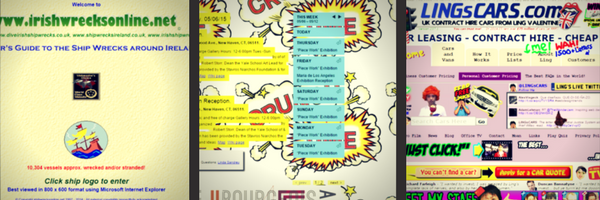In today’s day and age of business and technology, can you believe nearly half of small businesses (around 45%), do not have websites? I think about how I do my research when I am looking to purchase a product or engage a business for their services and it always comes back to online searching. One of the first things I do is look for a company’s website. It depends what I am looking for – my search is different if I am looking for products vs. services. Sometimes I may look at LinkedIn or other social media platforms, but I always end up searching for a company’s website at some point. The fact is, this is how many people are wired these days. We have our phones with us at all times, and we like answers to our questions immediately as we do an online search.
I often joke, whenever I have a question about anything, that I must have instant answers. I instantly whip out my phone and pull up the websites that can answer my questions. Imagine if my question is about a product or service that your business provides.

The importance of having a website is two-fold: the basic act of having a website and then having a good website with great content and appealing design. Don’t have a website simply so you can say you have one, but it’s awful. You don’t want it to be:
- Old
- Dated
- Not pleasing to the eye
- Filled with bad content
- Overwrought with too much content and not enough images
- Difficult to navigate
- Lacking valuable information
Some Stats to Consider

I have seen varying statistics on the topic of websites, their usage and their importance. These stats are an average of what I have seen.
83% – Consumers who visit a company’s or service provider’s website before making a purchase.
57%-90% – The percentage of the buyer’s journey that is complete before a buyer even reaches out to sales, dependent on industry. You are missing out on prospects you don’t even know exist!
51.3% – Mobile and tablet usage which has now surpassed desktop usage.
78% – Mobile searches for local business information that result in a purchase.
80% – Smartphone users who use mobile phones for shopping research.
64% – Shoppers who are dissatisfied with a site visit and say they will go somewhere else to shop next time.
88% – Online consumers who are less likely to return to a site after a bad experience.
75% – People who would rather read a website beautifully designed than something plain.
51% – People who think “thorough contact information” is the most important element missing from many company websites.
44% – Website visitors who leave a company’s website if there’s no contact information or phone number.
83% – Small business owners with a website who feel they have a competitive advantage over those without a website.
What is a quality website?

A quality website is one that your prospective customers want to visit and stay on, for a while. It should make the viewer say, “I want to do business with this company”. The valuable content on your site must help the viewer solve their problems and pain points, answering their questions. So, what does this mean? What are the characteristics of a quality website:
- Clean
- Well-organized
- Easy and intuitive to navigate
- Clear/concise
- Modern (style and layout)
- Functional
- Branded
- Look good and function properly across all browsers
- Responsive for mobile viewing (this one is a “must”)
- Valuable content
- Well-written (no spelling or grammatical errors)
- Quality images (clear and not blurry, well designed and no clipart)
- Consistent fonts and font sizes across the website (web-compatible fonts)
- Consistent and pleasing brand colors
Why should every business have a quality website?
There are statistics that show small business owners do not necessarily believe their business needs a website. Again, I think back to my own habits of due diligence and I encourage you to do the same. Most people today do their research online before they make a purchase or engage a with company. If you do this before you engage a company for business, why wouldn’t your prospective customers do the same before they engage with you? Key advantages of having a quality website include:
- Brand awareness – This is your permanent and very visible online brochure and business card. Prospects are making a judgement about whether you and your company are the professional organization they want to do business with. This is your chance to make a great first and lasting impression. A quality website is a reflection of your business and professionalism.
- Digital presence – A website is one of the most important business tools available to help build your digital presence. It is your original stamp on the business world. If you and your company do not have a digital presence, for many people today, it is like you do not exist.
- Extension of your sales staff – Your website is the only 24/7/365 salesperson your company employs. This allows your human sales staff to be more productive.
- It is an important way to be found by prospects – These days, it is intuitive to search for a company’s website when you need to solve a problem or cure a pain point. Prospects look for your company and your website to get all the information they need.
- Global and local business – In the past, only companies with big budgets could hope to gain customers beyond local prospects. Today you can have both – national and international customers as well as local customers.
- Level the playing field with big businesses – Big companies with big budgets are sure to have big websites. You must have a website and you will be able to compete with companies bigger than you.
- Provide a way for prospects to contact you – Simply stated, a website is the modern-day phone book. Not having a website is comparable to not being in the phone book. When were you ever not in a phone book?
- Engagement with customers and prospects – If you are an online business, a website is the best way to engage with viewers. To do this, your website must be visually strong and appealing.
- Competitors – Your competitors are looking for all advantages over you. It’s not the only reason to have a website, but you can count on your competitors to have one.
- Establish expertise and thought leadership – You need to show customers and prospects that you are an expert and leader in your industry. If you don’t prove it, they won’t know it. A website is the perfect showcase for your expertise.
- Legitimizes your business – Customers and prospects expect businesses to have a website. It’s that simple. A website gives a business credibility. Not having a website can and will make them question the viability of your business.
- Another channel for marketing – In conjunction with other marketing initiatives you are doing, a website gives you another channel for your marketing efforts.
- Data collection and lead generation – A website is a chance for you to look at data – who is visiting your site, from where, from what resource and what content they are reading. This is a goldmine of information and can help you form your marketing plan, going forward.
- A platform to showcase your work – Depending on your business and industry, a website is a perfect place to serve as an online gallery of your work. And it’s a gallery that is open and viewable 24/7/365.
If you still don’t see the value in having a great, high-quality website, check out your competitors. Think about how you are currently getting new clients. Think about how a 24/7/365 salesperson may be able to help you in your efforts. And think about how you do your research before you engage with any business before a purchase. It’s likely the answer to all of these points leads to a great website.
Please contact Anna Brice at Pinnacle Peak Marketing, Scottsdale AZ about Marketing for Small/Medium Business.
Email: anna@pinnaclepeakmarketing.com
Phone: 480-661-0292
Website: https://pinnaclepeakmarketing.com

